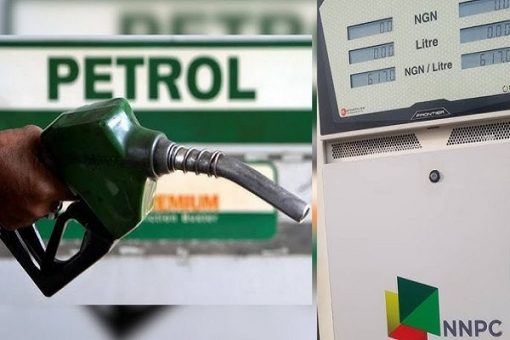

Petrol Prices Slash Marketers
The Independent Petroleum Marketers Association of Nigeria (IPMAN) has called for a reduction in petrol prices, urging the Dangote Refinery to lower its ex-depot price from ₦970 per litre in light of a reduced estimated landing cost of ₦900.28 per litre.
This plea comes amidst the Federal Government’s crude-for-naira initiative, which began in October 2023. Under the scheme, 385,000 barrels of crude are supplied daily to the Dangote Refinery for local refining.
EDITOR’S PICKS
EKO HOT BLOG reports that however, Dangote Industries Vice President, Devakumar Edwin, recently expressed frustration over inadequate crude supplies from the Nigerian National Petroleum Company Limited (NNPCL).
Edwin revealed that while the refinery needs 650,000 barrels per day, it receives significantly less, forcing the company to import crude to meet demand and export refined products to West Africa.
IPMAN National Publicity Officer, Chinedu Ukadike, emphasized that production costs, foreign exchange rates, and deregulation dynamics influence petrol pricing.
He acknowledged Dangote’s gradual price adjustments—from ₦990 to ₦970 per litre—but urged further reductions to promote competition. Ukadike also credited the Nigerian Midstream and Downstream Petroleum Regulatory Authority for preventing monopolies and fostering a healthier market.
IPMAN Petrol Price
Meanwhile, the Petroleum Products Retail Outlets Owners Association of Nigeria (PETROAN) ruled out immediate resumption of fuel imports, citing commitments to sourcing locally refined products. PETROAN President Billy Gillis-Harry affirmed the association’s support for the Federal Government’s initiative, while noting that importation remains a cheaper alternative.
Civil society groups criticized the crude-for-naira scheme’s limited impact on fuel prices. Auwal Rafsanjani, Executive Director of the Civil Society Legislative Advocacy Centre, accused the government of prioritizing revenue generation over citizens’ welfare. Debo Adeniran of the Coalition Against Corrupt Leaders highlighted the influence of a fuel “cabal” and foreign price controls as impediments to affordable local production.
With festive demand for fuel rising, stakeholders agree on the need for pricing reforms to alleviate economic hardship while sustaining the deregulated market structure.
Here’s the video of the week:
President Tinubu expressed his condolences, stating that Okupe's death was a personal loss to him,…
U-VOL Foundation, a U.S.-based international healthcare relief non-profit organization, aims to improve health equity in…
Onana Rejects Saudi Move, Commits To Manchester United. Struggled in debut season but remains determined…